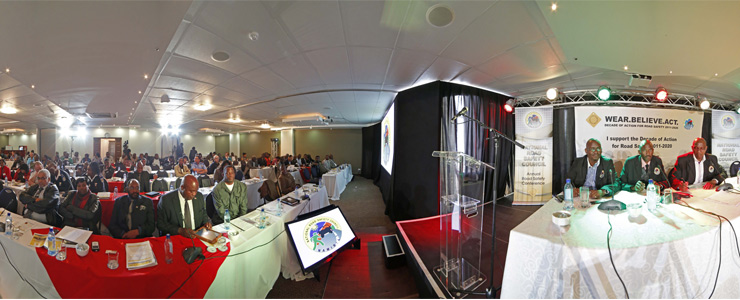The current arrangements for road safety management in Namibia have its origin deep rooted in the dispensation prior to independence. Despite extensive review of the legislation regulating road traffic and road transport in the country, road safety management has largely remained fragmented. The White Paper on Transport Policy of 1995 does not explicitly cover road safety management, notwithstanding its far-reaching effects on the road traffic and transport environment and legislative framework. However, the White Paper recommends that:
“a more holistic approach be taken in respect of the organizational structure required for handling road safety matters, including defining roles for both the private and public sectors”.
In 2009, Namibia with the rest of the world participated in a global conference of Ministers of Transport that was held in Moscow. The meeting produced what is today called the Moscow Declaration which among others called for the United Nations General Assembly (UNGA) to declare 2011-2020 as the decade for the promotion of road safety globally. The Moscow Declaration was adopted by the UNGA in March 2010 thus paving the way for member states to act as per the recommendations thereof.
On her part, Namibia following Cabinet approval developed the Namibian Chapter of the Decade of Action 2011-2020 as the strategic roadmap towards improved road safety performance. The Roadmap includes a comprehensive Action Plan that covers the identified six (6) functional areas of:
- Road Safety Management
- Road Safety Education
- Law Enforcement
- Engineering of Vehicles
- Engineering of Roads
- Emergency Response and Trauma Care.
Download : the Namibian Decade of Action 2011-2020



